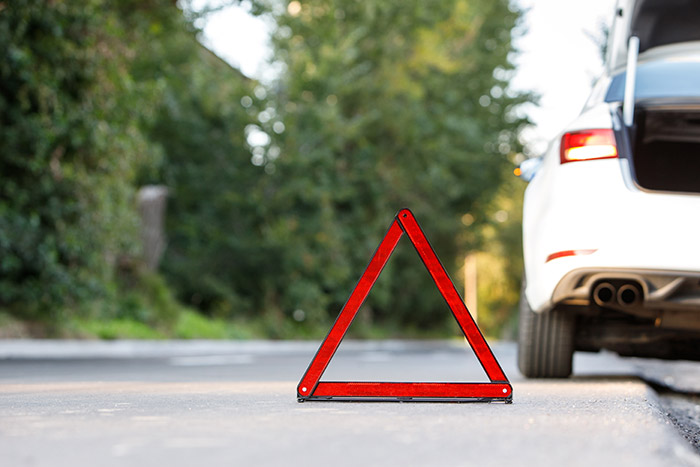Vehicle pumps, such as water pumps, fuel pumps, and oil pumps, are critical components that ensure smooth operation and optimal performance of your car. However, like any mechanical part, they are susceptible to wear and failure over time. Understanding the common causes of pump failures and implementing effective maintenance strategies can help you avoid costly repairs and inconvenient breakdowns. In this article, we’ll explore the most frequent reasons pumps fail and offer practical tips to extend their lifespan.
1. The Role of Pumps in Vehicles
Vehicle pumps play vital roles in maintaining functionality and efficiency. The water pump, for example, circulates coolant through the engine to prevent overheating. Fuel pumps ensure the engine receives a steady flow of fuel, and oil pumps maintain proper lubrication to reduce friction and wear on engine components. When any of these pumps fail, it can lead to significant damage and performance issues.
2. Common Causes of Pump Failures
A. Contaminants in the System
Contamination is one of the most common culprits behind pump failure. Dirt, rust, or debris in the cooling, fuel, or oil system can damage pump seals, bearings, and internal components, leading to reduced efficiency or complete failure.
B. Wear and Tear
Over time, pumps experience wear due to the constant motion of internal parts. For example, a water pump’s impeller may corrode or erode, while bearings in a fuel pump may degrade, causing the pump to fail.
C. Improper Installation
Installing a pump incorrectly can cause immediate or premature failure. Misaligned components, incorrect torque, or using the wrong gasket material can lead to leaks or mechanical stress on the pump.
D. Overheating
Inadequate cooling system maintenance can cause a water pump to overheat. High temperatures may warp internal components, reduce the pump’s efficiency, and lead to failure.
E. Lack of Regular Maintenance
Neglecting scheduled maintenance, such as replacing coolant, fuel filters, or oil, can put undue strain on pumps. Old or degraded fluids may become corrosive or abrasive, accelerating wear.
3. Signs of Pump Failure
Recognizing the early warning signs of pump failure can help you address issues before they escalate. Watch for these symptoms:
- Water Pump: Coolant leaks, overheating engine, or whining noises from the engine bay.
- Fuel Pump: Difficulty starting, loss of power, sputtering, or decreased fuel efficiency.
- Oil Pump: Low oil pressure warning, increased engine noise, or visible oil leaks.
If you notice any of these signs, it’s essential to diagnose and fix the problem immediately to prevent further damage.
4. Prevention Strategies for Pump Failures
A. Regular System Maintenance
Follow your vehicle’s maintenance schedule to keep systems clean and in good working order. Replace coolant, oil, and filters at the recommended intervals to prevent contaminants from entering the pump.
B. Inspect Components Periodically
Visually inspect pumps, hoses, and belts for signs of wear, cracks, or leaks. Addressing minor issues early can prevent more significant problems later.
C. Use Quality Fluids
Always use high-quality, manufacturer-approved fluids to reduce the risk of corrosion and wear. For example, use the correct coolant mixture for your engine and replace it according to your car’s maintenance schedule.
D. Ensure Proper Installation
If replacing a pump, follow the manufacturer’s installation guidelines carefully or seek professional assistance. Proper alignment, torque, and sealing are critical to prevent premature failure.
E. Monitor System Performance
Keep an eye on your vehicle’s gauges and warning lights. Sudden drops in oil pressure or temperature spikes can indicate a failing pump, giving you a chance to intervene before severe damage occurs.
5. What to Do When a Pump Fails
When a pump fails, it’s crucial to act quickly to avoid further damage. Here’s what you should do:
- Water Pump Failure: Stop driving and allow the engine to cool before addressing the issue. Continuing to drive can cause engine overheating and significant damage.
- Fuel Pump Failure: If the vehicle stalls or struggles to start, have it towed to a mechanic to prevent damage to the fuel system or engine.
- Oil Pump Failure: Do not drive the vehicle, as low oil pressure can lead to engine seizure. Have the vehicle inspected immediately.
Prompt repairs and replacements can minimize the risk of collateral damage and restore your vehicle’s performance.
6. Why Regular Maintenance is Essential
Regular maintenance not only prevents pump failures but also extends the overall lifespan of your vehicle. A proactive approach to care ensures that critical components operate efficiently and reduces the likelihood of unexpected breakdowns. By addressing small issues early, you can save money and keep your vehicle running smoothly for years to come.
Conclusion
Pump failures can be inconvenient and costly, but they are often preventable with proper care and maintenance. By understanding the common causes of pump failures and following the prevention strategies outlined in this article, you can reduce the risk of breakdowns and keep your vehicle in peak condition. Remember to watch for warning signs, maintain your vehicle regularly, and seek professional help when needed. With these practices, you’ll ensure that your vehicle’s pumps—and its overall performance—remain reliable for the long haul.
